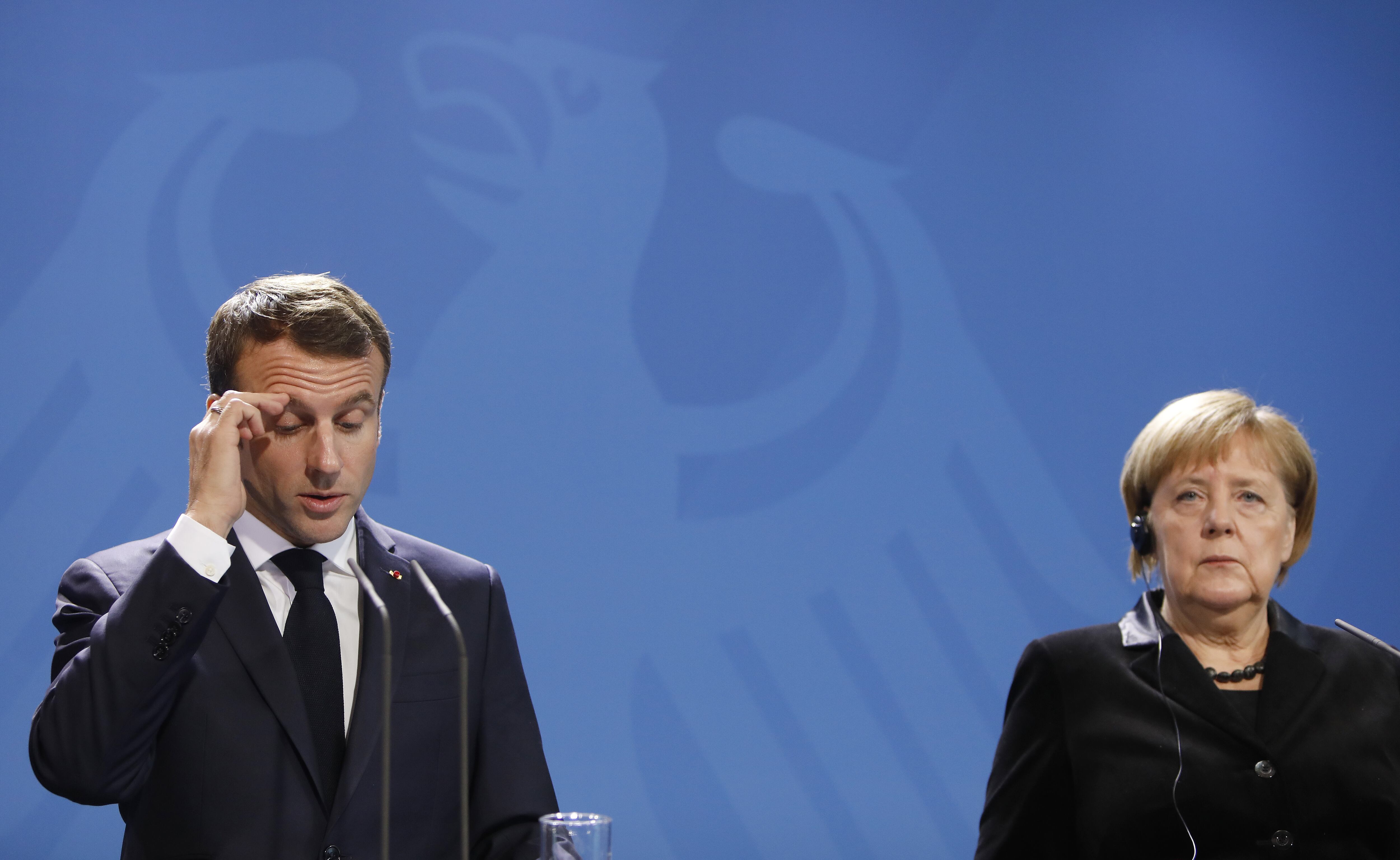COLOGNE, Germany — The German government will extend an arms embargo against Saudi Arabia through the end of the month, risking escalation of a growing dispute with France and the United Kingdom over sales of jointly produced weapons.
Foreign Minister Heiko Maas made the announcement during a news conference with his Danish counterpart, Anders Samuelsen, in Berlin on Wednesday. The ban was previously set to expire March 9.
Germany’s objections against arming Riyadh have taken center stage here in the negotiations over boosting the European Union’s defense capabilities. Industry advocates fear that Germany’s restrictive stance on arms exports undermines the newfound unity in producing joint military gear, including a sixth-generation fighter aircraft, a battle tank and a high-flying drone.
Officials in France and the U.K. have accused Germany of holding up weapons sales to Saudi Arabia, the world’s third-largest spender on defense, even when only a relatively small percentage of the overall product is made in Germany. These governments claim this has led to financial losses for their domestic defense industries.
The Merkel government placed a ban on weapons sales to Saudi Arabia following the death of Saudi journalist and Washington Post contributor Jamal Khashoggi, a U.S. permanent resident. It’s alleged he was killed at the Saudi consulate in Istanbul, Turkey, last fall. Western officials believe Crown Prince Mohammed bin Salman was involved in orchestrating the killing. The regime has denied any knowledge of it, instead describing the crime as a rogue operation gone wrong.
RELATED

Maas on Wednesday tied the future of the arms ban to developments in the Yemen civil war, where Saudi Arabia is an active combatant. Government officials are expected to assess the way ahead during this month, Maas was quoted as saying by the German wire service DPA.
Extension of the ban covers new export licenses. In cases where the government has previously approved a company’s export petition, the equipment would not reach the delivery stage, Maas said.
Angela Merkel’s CDU party has advocated for loosening export restrictions in the interest of European unity. The junior party, SPD, to which Maas belongs, has defined the issue as an ethical question, with the main objective of denying Germany’s weapons to human rights abusers.
Florian Post, a key voice in the SPD on arms exports policy, said in an interview with the Deutschlandfunk radio station earlier this month that Germany had “morally superior arguments” over France and Britain.
German industry officials have quietly lobbied the government to ease its restrictions, especially in cases of previously approved licenses. So far, few defense companies have openly challenged Berlin’s stance for fear of angering their main client.
"The unilateral extension of the ban on arms exports primarily affects European partners,” Matthias Wachter, a defense analyst with the German industry association BDI, wrote on Twitter. “Berlin threatens future joint projects and its own ambitions to foster a common European defense policy. Germany isolates itself in Europe even further.“
RELATED

Berlin’s skirmishes with Paris and London aside, some experts here believe the issue can only be settled through a multilateral approach. “You can’t solve this problem bilaterally,” Wolfgang Rudischhauser, vice president of the Berlin-based Federal Academy for Security Policy, told Defense News. “What we need is a European solution.”
He noted that the EU already has an approved common position for weapons exports, dated 2008 and crafted under French leadership of the European Council at the time.
But the rules lack an enforcement mechanism, leaving great leeway to EU members in the interpretation and overall adherence. The policy does speak to the question of exporting weapons to areas of conflict, however, and their application today would mean “the prospect of exports to Saudi Arabia at this point would have to be seriously scrutinized,” Rudischhauser told Defense News.
Widening the arms exports debate to a wider European level would mean “both sides will have to move,” he added, referring to Germany on one side and France and the U.K. on the other. That is because other member countries, like Sweden, also have restrictive policies.
Sebastian Sprenger is associate editor for Europe at Defense News, reporting on the state of the defense market in the region, and on U.S.-Europe cooperation and multi-national investments in defense and global security. Previously he served as managing editor for Defense News. He is based in Cologne, Germany.







